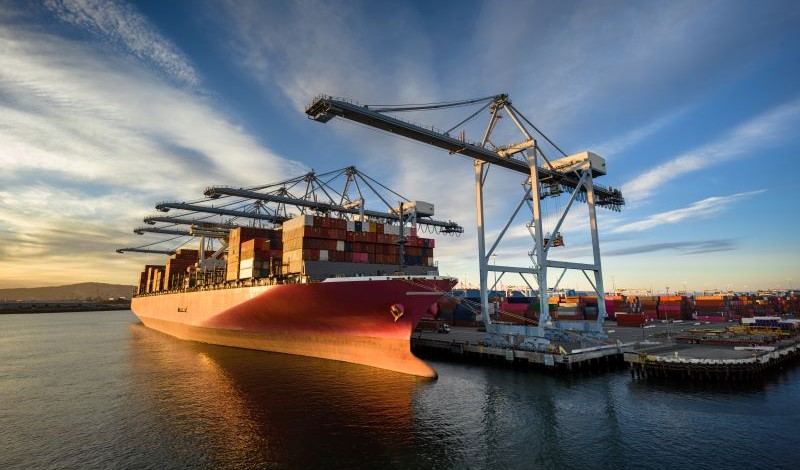
President Trump’s executive orders on reciprocal tariffs likely exceed his statutory authority.
Only a month before the U.S. Supreme Court handed down its June 2022 decision in West Virginia v. Environmental Protection Agency, I had written an article warning that the “major questions doctrine”—at that point a doctrine only identified in two “shadow docket cases,” which are cases on the Court’s emergency docket, decided without full briefing or oral argument—would undermine the ability of agencies to deal with changing circumstances. That ability, the Supreme Court had previously noted, was a feature of broadly framed statutes enacted to enable agencies to deal with big issues such as worker and food safety, unfair methods of competition, “unreasonable” utility rates and practices, and “unfair” labor practices. Congress knew that the precise problems sure to arise in these areas were unforeseeable.
The Supreme Court historically gave agencies the flexibility to address big issues when they arose. Regulatory agencies, the Court observed more than a half-century ago, must adapt their rules and practices to respond to “a volatile, changing economy.” Just a decade ago, late Supreme Court Justice Antonin Scalia similarly pointed out that Congress “knows to speak in plain terms when it wishes to circumscribe, and in capacious terms when it wishes to enlarge, agency discretion.”
The Supreme Court no longer sees it that way. When, in “extraordinary cases,” an administrative agency adopts a rule of great “economic or political significance,” the Court held in West Virginia v. EPA, the agency acts within its authority only if it can “point to ‘clear congressional authorization’ for the power it claims.”
Many scholars who worried about the expansion of the administrative state applauded the opinion, seeing it as a useful antidote to what they have viewed as agency usurpation of congressional prerogatives. John Yoo and Robert Delahunty described West Virginia v. EPA as a “blow to the imperial bureaucracy.”
In the short time the doctrine has taken hold, the Supreme Court has used it to strike down an Occupational Safety and Health Administration regulation on masks and vaccines aimed at reducing the workplace risk of COVID-19, a Centers for Disease Control and Prevention COVID-19-related eviction moratorium, the Biden Administration’s student debt forgiveness rule, and even the Obama Administration’s Clean Power Plan that “never went into effect.” Since June of 2022, the U.S. Court of Appeals for the Fifth Circuit has accepted major questions doctrine-based challenges to agency rules in nearly 20 cases.
The same doctrine used to limit perceived liberal agency action may now be poised to rein in some of the Trump Administration’s actions. In early April, the conservative New Civil Liberties Alliance filed a lawsuit on behalf of Simplified, a Florida importer challenging the Trump Administration’s recent executive orders imposing tariffs on goods imported from China. The executive orders, the plaintiff pointed out, were premised on an emergency relating to illegal opioids entering the United States from China. The plaintiff charges that the Administration’s tariffs exceeded its authority under the International Emergency Economic Powers Act (IEEPA).
A President’s actions, including the issuance of executive orders, are not reviewable under the Administrative Procedure Act (APA) because a President is not an “agency” under the APA. But when a President’s executive orders are implemented by federal agencies, the final actions of those agencies are reviewable under the APA. Simplified’s complaint names the Department of Homeland Security and the U.S. Customs and Border Protection as defendants, the latter of which administers customs duties.
At the heart of Simplified’s complaint is the allegation that because the executive orders relating to tariffs on China “present a question of ‘vast economic and political significance,’ the major questions doctrine requires the President to show that the IEEPA ‘clearly’ authorizes him to impose tariffs.” The President, however, cannot make that showing, argues Simplified.
The same logic underlying Simplified’s suit would likely equally apply to the broad swath of other “reciprocal tariffs” mandated by the President’s April executive order.
Actually, reciprocal tariffs is a misnomer. They are not remotely reciprocal. Rather, they are illogically based on whether the United States has a trade deficit with the targeted nation.
But the Trump Administration’s mischaracterization of the tariffs aside, reciprocal tariffs have been justified by a claimed, albeit different, “emergency:” the existence of unfair trade practices and “large and persistent annual United States goods trade deficits.” As in the case of the executive orders challenged in the Simplified complaint, the April executive order, which targets nearly 90 nations with steep tariffs, is similarly predicated on the IEEPA. The executive order also references the National Emergencies Act, the Trade Act of 1974, and a third federal statute that governs the President’s ability to delegate power to agency heads.
The Trump Administration does not explain how “large and persistent” trade deficits—a decades long problem—constitute an emergency. But accepting the existence of the emergency, as with the IEEPA, nothing in the National Emergencies Act references tariffs. As for Trade Act, it merely authorizes the President to have included in the Harmonized Tariff Schedule the substance of the provisions of the Tariff Act and any other act “affecting import treatment,” not independent tariff-setting authority. And the statute on the presidential delegation of authority to agency heads merely authorizes the President to delegate to subordinate departments or agencies the authority to carry out statutory powers the President has been given by Congress. These missing statutory bases for the reciprocal tariff executive order can all form possible arguments to support major questions challenges.
Following the recent downturn in the bond market, President Donald J. Trump announced that he was suspending the reciprocal tariffs for 90 days—only hours before they were to go into effect. Will others mount major questions doctrine challenges to the reciprocal tariffs? Given the on-again-off-again pattern of the Administration’s tariffs, a success by Simplified in its litigation might well spur similar suits.




